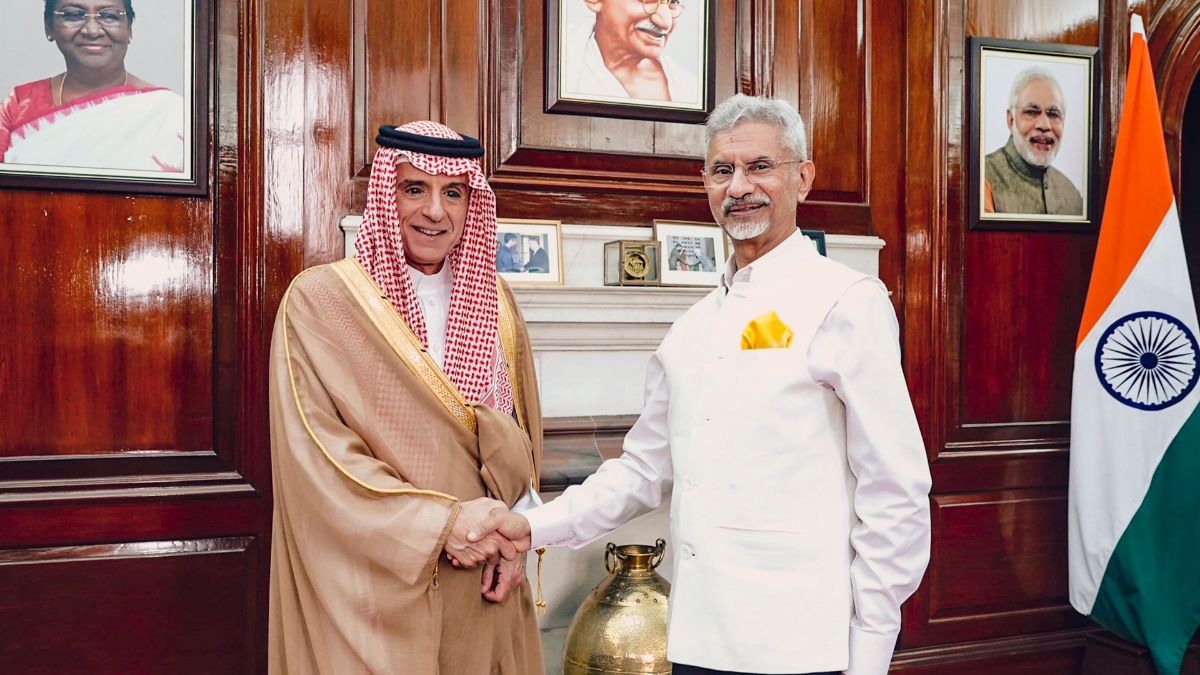Proxy war? How regional powers Saudi Arabia and Iran are taking sides in the India-Pakistan conflict
 External Affairs Minister S Jaishankar shakes hands with Minister of State for Foreign Affairs of Saudi Arabia Adel al-Jubeir during a meeting | PTI
External Affairs Minister S Jaishankar shakes hands with Minister of State for Foreign Affairs of Saudi Arabia Adel al-Jubeir during a meeting | PTI
The recent India-Pakistan conflict that captured the world's attention has marked the emergence of a new diplomatic trend wherein regional powers are increasingly taking sides, according to an analyst.
The countries in question include Iran and regional powerhouse Saudi Arabia, argues Brandon J. Weichert, a former Congressional staffer and geopolitical analyst, in his blog in National Interest.
He notes how Saudi Arabia, which had been a close ally of Pakistan for decades, slowly inched towards India and even sent its Foreign Minister Adel al-Jubeir to meet External Affairs Minister S. Jaishankar on the day India launched Operation Sindoor. This was a curious shift in its foreign policy since Saudi Arabia had been a longtime religious and strategic ally of Pakistan to the extent that it was assumed that if Riyadh wanted to acquire nuclear weapons quickly, it could purchase them from Pakistan.
However, tables have since turned. India is Saudi Arabia's second-largest and the kingdom India's fifth-largest. Besides, Saudi Arabia’s Public Investment Fund (PIF) has invested significantly in India, and its 'Vision 2030' aligns with India’s development goals like the Skill India and Digital India plans. The countries also have a defence partnership with joint naval exercises like Al Mohed Al Hindi ongoing since 2021, the analyst states.
Interestingly, Prime Minister Narendra Modi was in Riyadh to meet Crown Prince Mohammed bin Salman when the Pahalgam attack happened. He cut short his trip, rushing back.
Weichert's states that Saudi Arabia's recent closeness with India also reflects its disappointment with Pakistan due to the prospects that the Pakistani government is to some extent a state sponsor of Islamist terror. The current administration's anti-extremist views also make it a close ally of India.
Saudi Foreign Ministry also declared its efforts to mediate between India and Pakistan to de-escalate tensions and promote dialogue.
On the other hand, Weichert argues that Iran, despite its complicated relationship with Pakistan, is inclined to support Islamabad due to the China factor. Beijing is a key ally of both Tehran and Islamabad, thanks to their trilateral cooperation, particularly through its Belt and Road Initiative development project and the Shanghai Cooperation Organisation international forum.
He added that Beijing views Pakistan as a cudgel to use against its Indian rivals. "Iran, as a member of China’s budding Eurasian alliance, is likely attempting to march to China’s tune by supporting Pakistan," Weichert argues.
That said, India has sought to improve its ties with Iran though it has weakened the trade relationship with Tehran due to growing pressure from US economic sanctions directed against Iran. Iranian Foreign Minister Abbas Araghchi, after his Islamabad visit, had arrived in New Delhi too. Tehran expressed its willingness to mediate between the countries, but India didn't respond to the offer.
Middle East